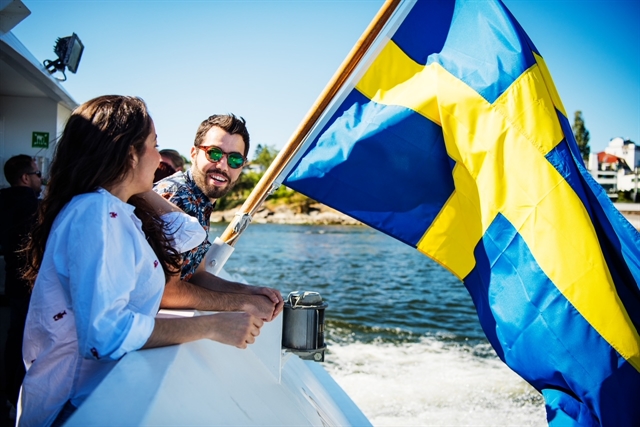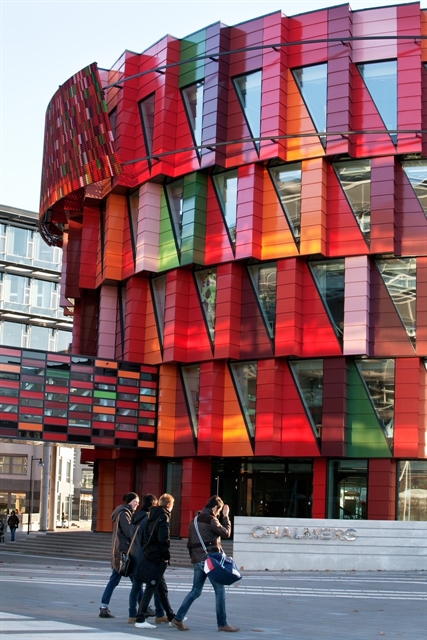.jfif) Opinion
Opinion

On the occasion of the Sweden’s national day (June 6, 1523 - June 6, 2023), the Ambassador of Sweden to Việt Nam Ann Måwe wrote to Việt Nam News, highlighting the country's journey towards progress
This year marks several milestones for my country, Sweden. In 2023, we celebrate 500 years since Gustav Vasa was elected king on June 6, 1523, starting a new era of Sweden as a modern nation. This year is also the 50th anniversary of His Majesty King Carl XVI Gustaf’s reign.
It therefore makes sense for me, today on Sweden’s national day, to reflect on Sweden’s journey towards progress, both in the past and present, and our aspirations for the future – including in our relations with Việt Nam.
Over the centuries, Sweden has been shaped by its unique geography, history, and culture. From the forests to the cities, from the Arctic Circle to the Baltic Sea, from football to music, Sweden has always been a country of contrasts and diversity. It is defined by successes in innovation and development, and from cutting-edged industries and technologies to music and fashion, we have made significant contributions in various fields.

|
| The national flag of Sweden. Photos courtesy of the Swedish embassy in Hà Nội |
Here are a few lessons we have learned along the way:
First, Sweden has a long tradition of investing in education and research. From the establishment of the first university in Uppsala in 1477 to the many modern universities and research institutes which today are among the top 100 world rankings, Sweden has always valued knowledge and learning. This has created a highly skilled workforce and a culture of innovation.
Second, we have a strong tradition of social welfare and equality, which has contributed to a more equal distribution of wealth and opportunities, creating a more stable and inclusive society. It has fostered entrepreneurship and risk-taking, while also promoting the active participation of women in the labour market. As a result, combined with an education system that encourages you to go out and test your wings, people from all backgrounds have been able to try, fail, try again and ultimately succeed.
Third, a culture of collaboration and cooperation is deeply ingrained in Swedish society, and I firmly believe in its importance. The Swedish model of social partnership exemplifies this approach, with close collaboration between labour unions, employers, and the government. This has fostered a more productive, harmonious, and trusting working environment, and enabled many Swedish multinational companies to thrive internationally. Furthermore, collaboration is one of the driving forces of the Swedish innovation ecosystem seen through the synergy between government, academia, industry, and civil society coming together to foster innovation in a ‘quadruple Helix cooperation model’.
Last, Sweden has a strong commitment to sustainability and environmental protection, which has driven the development of innovative solutions and technologies. These initiatives have not only helped to protect the environment but have also created new business opportunities, particularly in clean tech and green businesses.
These factors, combined with a strong work ethic and an environment nurturing creativity and innovation, have made Sweden a global leader in many fields. From companies like Atlas Copco, IKEA, Ericsson, Polarium, and Volvo, to inventions like the three-point seatbelt, pacemaker and Spotify, Sweden has made a significant contribution to the world.

|
| An innovation hub in Sweden. |
While I was at Europe Village last month, I met hundreds of bright young Vietnamese people who were curious about Sweden as an interesting destination and what our shared future holds.
One of our ambitions is to become the world’s first fossil-free nation by 2045, and we are making significant progress towards this goal. The country has invested heavily in renewable energy sources, such as wind and hydroelectric power, and has implemented policies to encourage energy-efficient buildings and greener transportation. These efforts have earned Sweden a consistent ranking as one of the most sustainable countries in the world.
Sweden’s circular economy is a role model for others as we have been able to turn waste into a resource, and it has implemented policies to encourage recycling and waste reduction. In fact, Sweden has become so successful in this area that it now imports waste from other countries to use as fuel in its waste-to-energy plants.
Việt Nam has identified green transition as a critical long-term goal and is actively implementing a roadmap to achieve it by 2050. Additionally, Việt Nam has demonstrated strong economic performance and is striving to improve its position in the global innovation index. By leveraging innovation, sustainability and co-creation, Sweden and Việt Nam can expand our cooperation in green growth, innovation and sustainable development, and complement each other’s strengths and competitiveness in these fields.
Sweden is a top destination for talent, thanks to our high standard of living and emphasis on work-life balance. In fact, Sweden has one of the highest numbers of international students per capita in the world. Our progressive values and welcoming attitude towards diversity make it easy for newcomers to integrate into Swedish society. Additionally, Sweden has a high level of English proficiency, making it easy for non-Swedish speakers to study and work in the country.
As we celebrate modern Sweden’s 500-year anniversary this year, and as we plan for our joint celebration of the 55 years of diplomatic relations between Sweden and Việt Nam in 2024, I look forward to seeing the relations with Việt Nam become even stronger not least when it comes to trade and investment, and most notably through our joint work towards a more sustainable and innovative future. It is our joint interest to continue to innovate, to Pioneer the Possible, and build a better and greener future for our two countries, and the world. VNS




